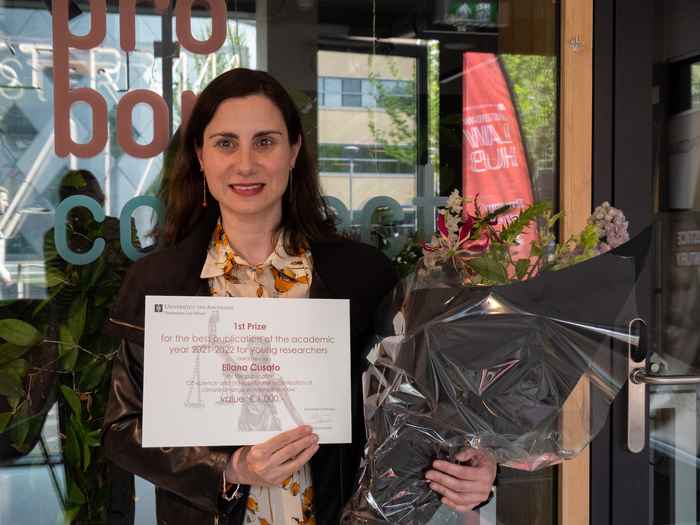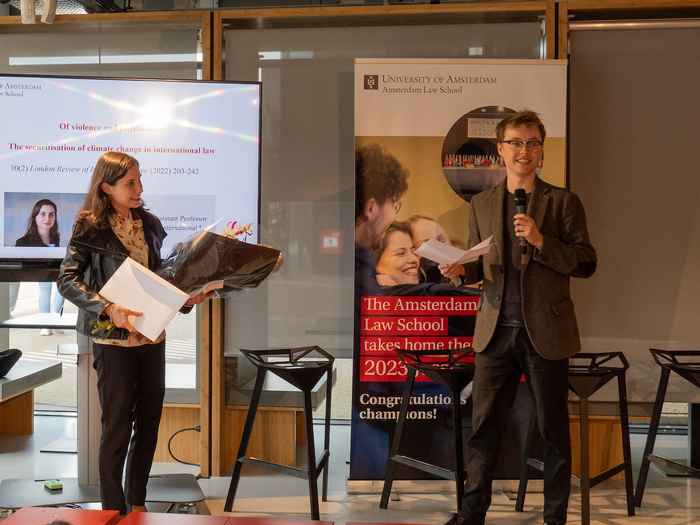Faculty Prize ’21-’22 to Eliana Cusato
Amsterdam Law School
16 May 2023

The jury, consisting of Paddy Leerssen, Maarten den Heijer and Corrette Ploem, was able to choose from 8 submissions this year, all from female researchers. The articles were published between 1 September 2021 and 31 December 2022.
The selection was based on the criteria 'scientific originality and contribution', 'thoroughness', 'transnational character' and 'international focus'. The jury praised all 8 submissions for their very high quality.
Eliana Cusato was chosen winner of the Faculty Prize with her article Of violence and (in)visibility: the securitisation of climate change in international law published in the London Review of International Law, Volume 10, Issue 2. The article addresses the issue of climate change as a security problem. It maps the political interests involved in characterising climate change as a peace and security issue.

Jury Report
The jury said the following about Eliana's research:
In short, Eliana helps us seeing the concept of climate justice more clearly by challenging the core concepts through which we frame this ‘crisis’. In a very crowded field of young faculty researchers, this paper stood out to the jury for its combination of theoretical depth and practical significance.
The jury was impressed by Eliana’s careful and effective deployment of critical security studies, which is supplemented by many deft references to a range of other literatures, including political ecology, political economy, and legal history. This diversity never veers into eclecticism; rather it coheres into an exemplary multidisciplinary argument and a testament to Eliana’s skill and erudition as a researcher.
Critical though her considerations may be, Eliana’s work also offers practical suggestions. Her conclusions point to other domains beyond security where more productive discussions might be held. And, most importantly, she teaches us a crucial lesson about framing, which is both relevant and actionable to almost everyone involved in climate change debates.
In sum, Eliana has produced an excellent work of legal scholarship, at a standard to which all young researchers can aspire.